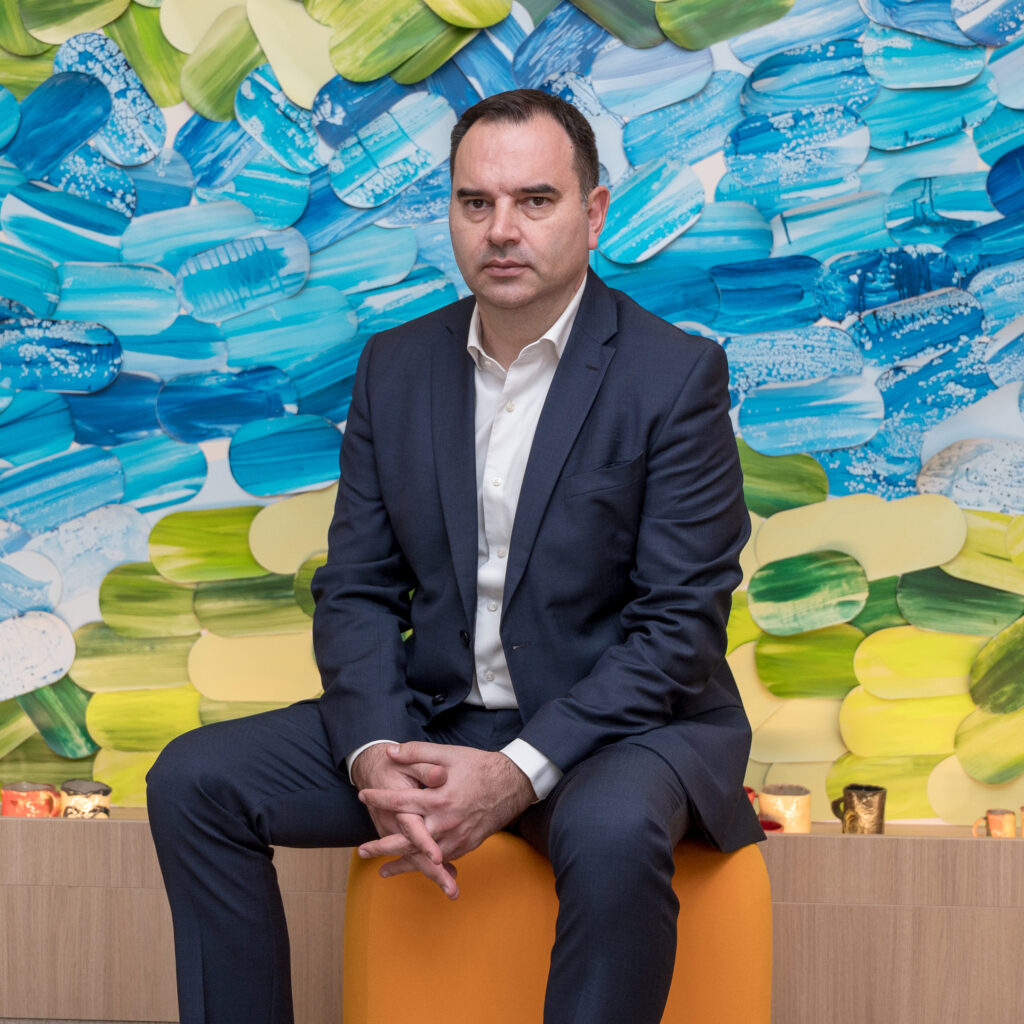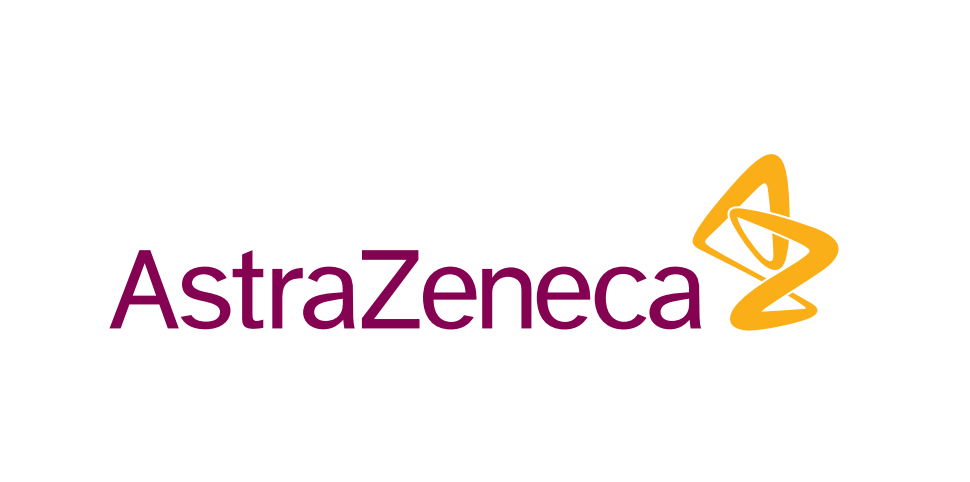From digital transformation to public partnerships, the company strengthens its regional presence while staying focused on patients and sustainability

Aleksandar Tripković, Government Affairs and Market Access Manager of AstraZeneca, speaks about the company’s strategic priorities in Serbia and the broader Balkan region.
AstraZeneca is a renowned pharmaceutical giant recognized for its innovative approach to healthcare. Could you provide a more detailed insight into the company’s foundational identity and mission and how it’s maintaining the leadership position in the global biopharmaceutical industry?
AstraZeneca is a global biopharmaceutical leader with a 110-year existence, throughout which it has traversed a path filled with successes, challenges, and discoveries that have changed the world. With cutting-edge research, pioneering therapies, and an unwavering commitment to excellence, AstraZeneca stands at the forefront of medical discovery, empowering the future of healthcare today. The years pass, the world is constantly changing, the company was evolving, but one thing remained the same – AstraZeneca was always trying to discover what science can do, for people, society, and the planet. AstraZeneca is now as the largest company on the London Stock Exchange, which is an admirable position. In Serbia, the company has been helping to save lives and improve the quality of life of thousands and thousands of people for the past 47 years of its existence in the country.
Being a British-Swedish company we are proud to say that we have excellent relationship with both the Embassy of the United Kingdom and the Embassy of Sweden, and we collaborate closely in many fields and projects together. For example, AstraZeneca partnered with the UK Embassy when the company decided to join the “BIO4” project through which the company will implement three strategically very important initiatives, including genetic testing for BRCA mutations in early breast cancer patients. Both AstraZeneca and the UK Embassy are deeply passionate about these scientific projects, which are set to bring significant benefits to the citizens of Serbia.
AstraZeneca has played a pivotal role in global healthcare in recent years. How would you describe the company’s current strategic focus in the region?
Our regional strategy aligns with AstraZeneca’s global priorities of advancing science and creating life-changing medicines, following the Ambition 2030 principles. Our vision is to tackle global health challenges while promoting sustainable growth. Ambition 2030 focuses on:
- Health Impact: Transforming lives by delivering life-changing medicines, targeting diseases with the greatest impact such as oncology, cardiovascular, renal, metabolic, and respiratory conditions.
- Environmental Protection: Committed to sustainability, achieving zero carbon emissions by 2025 and a carbon-negative value chain by 2030, while promoting biodiversity and minimizing waste.
- Ethical Standards and Governance: Ensuring transparency, inclusivity, and adherence to ethical standards in all operations.
In Serbia, part of the AstraZeneca Balkan Cluster, we aim to provide fast access to therapies and strengthen partnerships with local healthcare systems. With an aging population, there’s a rise in chronic and oncological diseases, emphasizing the need to adapt healthcare systems in collaboration with country institutions. Investing in healthcare, especially innovative therapies, supports both citizen well-being and economic growth.
Our commitment to putting patients first drives tangible health improvements, making our work deeply rewarding
What are some of the key therapeutic areas AstraZeneca is prioritising in Serbia and the broader Balkan Cluster countries?
On a global and local level AstraZeneca focuses on several therapeutical areas like Oncology, Rare Diseases, and BioPharmaceuticals, including Cardiovascular, Renal & Metabolism, and Respiratory & Immunology. These areas represent significant health challenges worldwide and, in our region, too. This is why our team’s goal is to make a tangible impact on patients’ lives by addressing pressing health concerns and ensuring broad access to our therapies.
In Serbia, e.g. cardiovascular diseases are the main cause of death (47.6%). Another “silent” disease with devastating consequences for patients is chronic kidney disease (CKD). Although CKD is expected to become the world’s fifth leading cause of mortality by 2040, up to 90% of people living with CKD don’t know they have it.
Our ambition in Oncology is to eliminate cancer as a cause of death and to improve patient outcomes significantly. Big focus in this regard we have in the field of Breast and Lung Cancer, as well as Gastrointestinal, Hematological, Gynecological and Genitourinary Cancers. Through our early access programs, we give Serbian patients the opportunity for free treatment with the company’s innovative products, which are not yet reimbursed by the healthcare system.
Following Ambition 2030, the company plans to launch 20 new medicines and our team in Serbia is here to boost all these innovative therapies to be accessible timely for those who need them most. For the last 3 years, in Serbia only, we introduced 30 new medicines and indications, that address the unmet needs for patients with oncological, cardiovascular, pulmonary, nephrological, rheumatological and rare diseases.
 Collaboration between the public and private sectors has become increasingly important. What kind of partnerships are you most proud of, and what do you hope to see more of?
Collaboration between the public and private sectors has become increasingly important. What kind of partnerships are you most proud of, and what do you hope to see more of?
We take pride in our partnerships with healthcare authorities, academic institutions, and government agencies, which have facilitated innovative therapies and improved patient education. We aim to expand public-private partnerships to enhance healthcare infrastructure and access to pioneering medicines.
In Serbia, AstraZeneca has been present for 47 years as a leading innovative pharmaceutical company. We’ve consistently partnered with local authorities to improve the healthcare system. Collaborating closely with healthcare professionals and policymakers, we ensure the availability of innovative medicines and invest in the local system through early access programs, policy engagement, public awareness campaigns, and educational initiatives. We’ve conducted clinical trials for years, now enhanced by both CRO partnerships and direct R&D efforts, allowing Serbian patients access to potential life-changing therapies.
There are a lot of projects that we could highlight, but here I can share some outstanding initiatives that we have had for 2024. End of last year Healthcare Academy of Serbia and Sweden was organized. It was held in Belgrade and led by Business Sweden under the patronage of the Serbian Ministry of Health and the Embassy of Sweden and supported by AstraZeneca. The Academy focused on one of most urgent health concerns: breast cancer. Serbian women face a high risk of mortality due to insufficient screening participation. Leading Swedish experts, renowned for their exceptional achievements in breast cancer prevention and early detection, shared their cutting-edge knowledge and strategies, aiming to transform breast cancer outcomes in Serbia.
Staying on the topic of Breast cancer, we are proud to share that AstraZeneca in collaboration with Teatar na Brdu launched award-winning awareness campaign last autumn too. Using the power of art the play Seven hours of Sunlight triggers public attention on the importance of regular checks and the journey a patient with Breast cancer diagnosis are going through.
We also have an excellent example in the field of data analytics and AI, that are increasingly enabling early disease detection and personalized treatments by identifying patterns for early diagnosis and intervention in chronic diseases. In Serbia, together with the Ministry of Health and other institutions we supported the upgrade of the primary healthcare information system for chronic kidney disease. This system now alerts professionals to potential kidney damage, enabling early diagnosis and optimal treatment effectiveness.
The greatest adventure – far beyond exploring jungles or deserts – is creating lasting impact through healthcare innovation in Serbia
How does AstraZeneca approach talent development and employee engagement in such a specialized and competitive industry?
At AstraZeneca, our people are our greatest asset. We invest in professional development with leadership programs and promote a diverse, inclusive culture that fosters innovation. Empowering teams with tools and skills positions them to shape healthcare’s future. As part of the Balkan Cluster, employees in Serbia engage in international projects, enhancing their knowledge and career growth.
Many colleagues are on international assignments, such as in Austria, Slovenia, and Portugal. Engagement results show high satisfaction, with 94% feeling inspired to do their best work and 89% recommending AstraZeneca as a great workplace. Notably, 97% strongly believe in the company’s direction and priorities.
To attract talent, we offer programs like the Balkan Internship, CEEBA Trainee program, and Hackathons for medical students.
On a more personal note—what motivates you most in your work, and what do you see as your biggest professional achievement so far?
What motivates me most in my work is the profound impact it has on patients’ lives. Even after 16 years in the company, I still feel the same sense of purpose and excitement as I did on my first day. At AstraZeneca we always put patients first, and this is one of our Values. Knowing that our efforts can lead to tangible improvements in their health is incredibly rewarding. Hearing feedback about a patient’s recovery after receiving our medication is immeasurable and reaffirming; it validates the meaningfulness of our work.
Seeing these results in our daily work fuels my motivation and commitment. One of my proudest moments was welcoming the arrival of AstraZeneca vaccines at the Nikola Tesla airport in February 2021. Standing there, aware of the lives these vaccines would save, was a powerful experience. AstraZeneca played a crucial role in ending the pandemic by distributing 3.5 billion doses worldwide without profit. We were able to ensure that Serbia was among the first to receive the vaccine, which opened doors for the region as our country allowed foreign nationals to be vaccinated as well.
This achievement exemplifies our commitment to saving lives and underscores the significant impact our work has on a global scale. It is this dedication to public health and patient well-being that continues to motivate me every day.